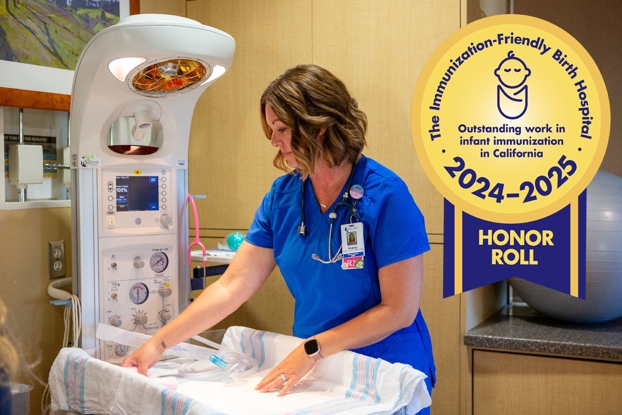5 Simple Tips for Preventing Birth Defects
- Category: Health & Wellness, Birthing
- Posted On:
- Written By: Dr. Iris Radler, MD

According to the Centers for Disease Control, birth defects affect one in every 33 babies born in the U.S. January is the month to bring attention to that statistic, via the promotion of National Birth Defects Prevention Month. Birth defects are common, costly and account for 20 percent of all infant deaths, according to the CDC.
The CDC recommends 5 key tips for preventing birth defects:
- Pregnant moms should take 400 micrograms of folic acid every day during pregnancy. Folic acid may help prevent some significant brain and spine birth defects, which develop early in a pregnancy. Women expecting to become pregnant should begin taking folic acid about one month before conceiving, and continue throughout pregnancy. Many vitamins sold in the U.S. have the recommended amount of folic acid necessary for women every day. Folic acid can be found in some breads and breakfast cereals.
- Make an appointment with your healthcare provider before you stop or start any medication if you are pregnant or plan to become pregnant. If you have a health condition requiring medication, consult with your primary care physician to create a treatment plan during pregnancy.
- Make sure you are up-to-date with your vaccinations, including a flu shot. Vaccines can help protect you and your fetus against serious diseases. Be sure to get a flu shot and whooping cough vaccine (called Tdap) during your pregnancy.
- Before you get pregnant, try to reach a healthy weight. Obesity increases the risk for several serious birth defects and other complications. Likewise, if you are underweight, consult your healthcare provider.
- Avoid harmful substances during pregnancy, including alcohol, tobacco products, and other drugs. Because alcohol can create problems for a developing baby at any stage of the pregnancy, it’s essential to stop consuming alcohol when you’re trying to get pregnant. As for smoking, it’s known to cause cancer, heart disease and numerous other health issues. Quitting smoking will ensure a healthier in-utero environment for your baby. If you have dependency issues with other legal and non-legal substances, a healthcare provider can help you find counseling, treatment and any additional support you may need.
Many birth defects are not found at birth. Because a birth defect can affect how the body looks, works, or both, some defects may not be easily discovered. Defects such as a cleft lip or spina bifida are immediately noticeable, while something such as a heart defect may not surface for some time. Tests such as ultrasounds and amniocentesis can detect some birth defects such as Down syndrome before a baby is born. That makes prenatal care and screening even more important because early diagnosis can help families make decisions for the future and begin early planning.






.jpg)